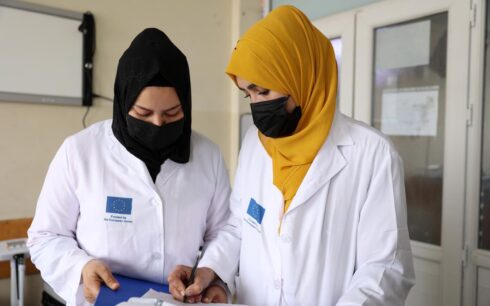A women’s and children’s rights watchdog has raised alarms about a surge in female drug addiction in Afghanistan since the Taliban takeover in August 2021. Afghanistan Women and Children, an advocacy group, claims that the increase in poppy cultivation under Taliban rule has fueled a growing drug problem that affects thousands of women in the country.
“The resurgence of the Taliban has brought with it a spike in poppy farming, as the group seeks to finance its activities through the lucrative opium trade,” the organization said in a statement. “This surge in drug production has inevitably led to greater availability of narcotics within the country, exacerbating addiction rates among the population, particularly among women.”
The watchdog attributed the rise in women’s drug addiction partly to the Taliban’s closure of schools and universities for women. “The prohibition of women from working outside the home has further confined them to a life of isolation and dependency,” the statement noted. “These restrictions, coupled with widespread poverty, have created a breeding ground for despair and hopelessness, driving many women to seek solace in drugs.”
The group also highlighted the pervasive issue of poverty in Afghanistan under Taliban rule. The lack of access to employment opportunities and the absence of social support systems leave many women with few alternatives.
“Women who are addicted to drugs face not only the physical and mental toll of addiction but also societal ostracism. This isolation can prevent them from seeking help, trapping them in a cycle of dependency and shame,” the statement reads.
The watchdog stressed the need for humanitarian aid and support programs to address the root causes of addiction, such as poverty, lack of education, and the prohibition on women working. The group called for immediate intervention to provide relief and support to Afghan women struggling with addiction.





